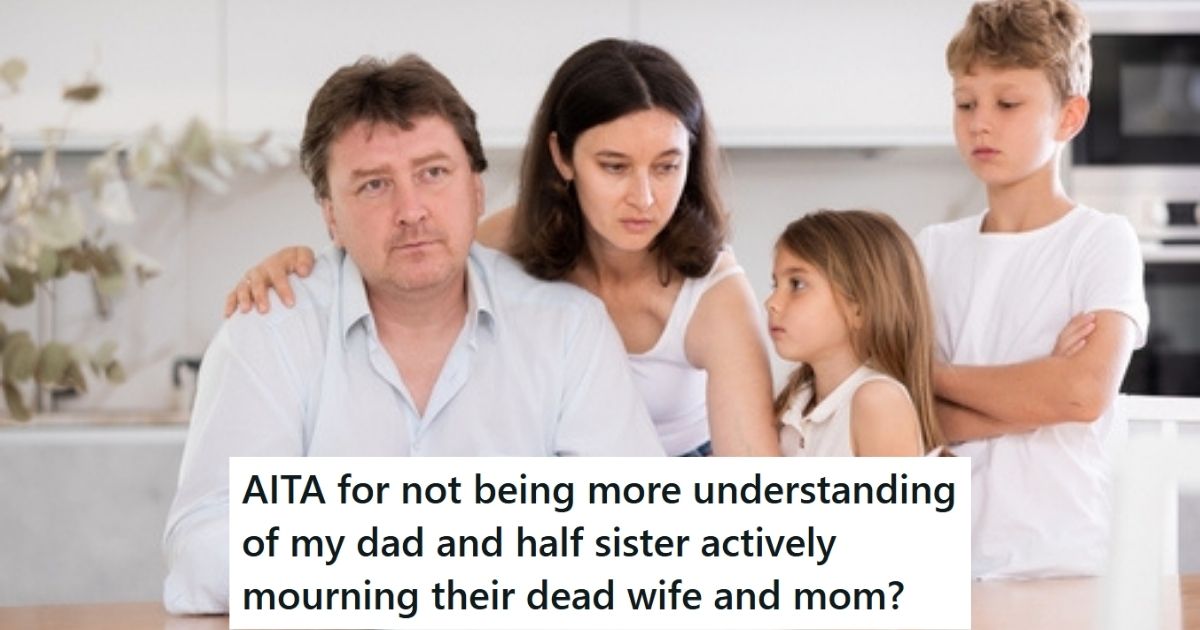Understanding the Emotional Struggles of a Family in Grief
Losing a loved one is an experience that can deeply affect individuals and their relationships. When a parent loses a spouse, the grief can be overwhelming and have long-lasting effects on their entire life. In some cases, this grief can influence how they interact with other family members, especially those who came into their lives after the loss.
For many, the challenge lies in balancing the need to honor and remember a deceased partner while also maintaining healthy relationships with current family members. This is especially true for children who may feel overshadowed or neglected by a parent’s ongoing mourning.
A Family Divided by Grief
A young man recently shared his story about growing up in a household where his father was still deeply affected by the death of his first wife. The man’s half-sister, who was only 7 years old when her mother passed away, has also struggled with the loss. As the young man grew older, he began to notice how the constant reminders of the late wife impacted their family dynamics.
The father would often bring up the late wife during significant events, such as birthdays or anniversaries. He would become emotional and sometimes even walk away from the situation, leaving his current wife and son feeling ignored or unimportant. The half-sister, too, seemed to carry the weight of the loss, often avoiding family gatherings or refusing to take photos with them.
The Impact on Family Relationships
This pattern of behavior created a sense of resentment and confusion for the young man. He felt like he and his mother were being treated as second best, not because of anything they did, but because of the lingering presence of the late wife. The father’s inability to move past his grief led to a lack of involvement in family events, which further strained relationships.
The young man also noted that his half-sister had chosen not to invite his mother or him to her wedding, as it was difficult for her to imagine them being present without her mother. Despite this, the father attended the wedding and spoke about his late wife in a way that made the young man and his mother feel even more excluded.
The Struggle for Empathy and Understanding
The young man expressed frustration with how his father and half-sister continued to prioritize their grief over the well-being of the rest of the family. He questioned whether it was fair for them to constantly bring up the late wife in every aspect of their lives. His mother, however, tried to reassure him that this was part of what it meant to be married to a widower.
Despite this, the young man felt that the constant focus on the past was making it hard for him to enjoy any family moments. He decided not to attend his father’s upcoming birthday party, fearing that he would be subjected to another emotional speech about the late wife. His decision to skip the event led to tension within the family, as his father’s side of the family accused him of lacking empathy.
Seeking Resolution and Healing
The young man believes that both his father and half-sister need professional help to address their unresolved grief. However, he has struggled to have meaningful conversations about these issues, as his father tends to avoid the topic whenever it comes up. His half-sister, on the other hand, seems to view him as an outsider, reinforcing the sense of exclusion.
He feels that the only way to protect himself from the emotional toll of these situations is to distance himself from future family events. While this may seem harsh, he believes it is necessary to preserve his own mental health and sense of self-worth.
Moving Forward
The situation highlights the importance of open communication and emotional support within families. It also underscores the need for individuals to recognize when grief is impacting their relationships in unhealthy ways. For the young man, the decision to step back from family gatherings may be a painful one, but it could be a crucial step toward healing and finding peace.







